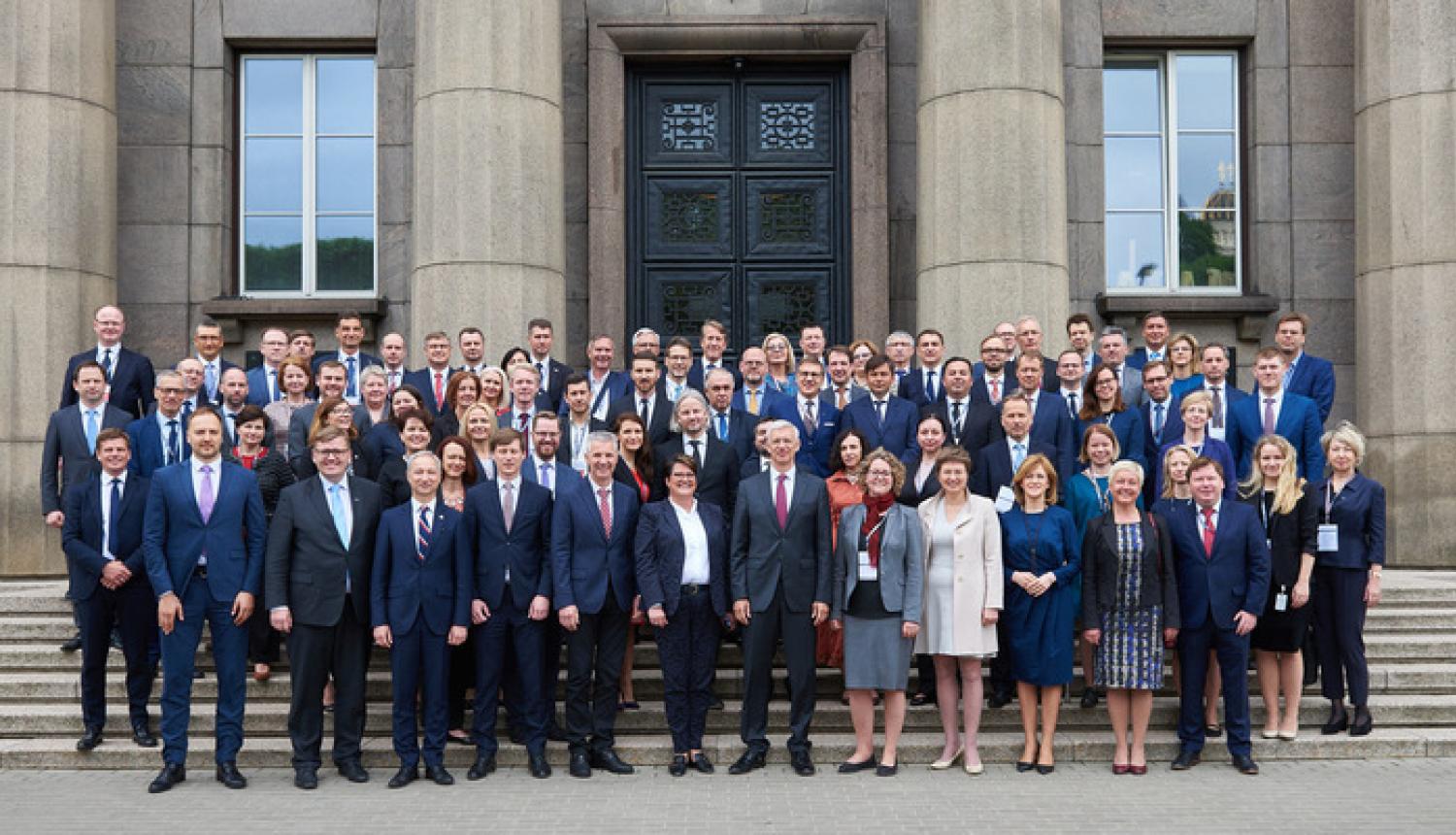On Friday 31 May, during the High Council meeting of the Cabinet of Ministers of Latvia and the Foreign Investors' Council (FICIL), the government and investors agreed on the most important priorities to improve the business environment in Latvia and competitiveness in attracting investment. It is necessary to modernize the management of universities and find efficient solutions to labour shortage, as well as to work towards improving the efficiency of public administration.
“The overarching objective of the government's work is to improve the business environment by ensuring greater influx of private investment, including foreign, into economy. The government is working to gradually improve this environment, with a particular focus on the financial sector, education, health, the rule of law and local governments. In my opinion, the most important outcome of today's meeting is that the government and investors share a common vision on the necessary improvements to the business environment. We will continue work in the light of the proposals we have heard today. It is important for me - the Head of Government, to ensure that the ideas and plans lead to concrete results,” said Prime Minister Krišjānis Kariņš.
“In previous years, we talked about labour shortage as a potential risk to the Latvian economy; however, this year it has already become a factor that is actually undermining economic growth. In addition, it is vital to build a competitive and modern higher education system so that Latvia can more quickly become a high-value economy. We are pleased that, in this respect, the views of entrepreneurs and government coincide, and we have agreed on concrete actions to make progress in these areas as soon as possible. It will unleash Latvia's growth potential and allow for faster improvement in the standard of living of society," said FICIL Honorary Chairperson Charlotte Norrby.
The modernisation of the governance model of higher education institutions would improve their international competitiveness and become the driving force of Latvia on its way towards high-value economy.
In order to achieve this objective, it is necessary to strengthen the role of the Advisory Convent in the adoption of strategic decisions, as well as to involve employers, alumni and other partners in the strategic management of universities. It is also necessary to develop a strategy for attracting foreign teaching staff and to review investment priorities, with the emphasis on the learning content rather than university infrastructure. Work still needs to be continued to promote closer link between universities and the needs of the labour market.
In order to eliminate the barriers to Latvia's economic development, solutions should be sought to the increased problem of labour availability. There is a need to improve the conditions for attracting foreign workers, as well as for more successful involvement of disabled people in the labour market. To increase the availability of labour, it is necessary to review the conditions that would encourage the mobility of workers in the regions.
It is necessary to improve those conditions that would motivate employers to invest in upgrading of skills and vocational training that would result in improved productivity.
In order to increase effectiveness and accelerate the digital communication between entrepreneurs and the public administration, it is necessary to review and optimise public administration's e-services from the point of view of user experience. The digitization of communication between businesses and public administration will also help limit the forms of the shadow economy.
In order to enhance the efficiency of public administration, specialised courts should be introduced, for example in the field of the application of the rules of the Law on the Financial Instruments Market and in the field of legal remedy, as well as inter-institutional cooperation should be promoted at national and international level in the investigation and adjudication of corruption and economic crimes. Work must be continued to improve Latvia's international reputation, including through timely implementation of the Moneyval recommendations.
During the meeting, the government and representatives of the Foreign Investors' Council in Latvia agreed that the principles of good governance should be introduced not only in state-owned capital companies, but also in local government authorities, as well as an audit of the functions of public administration institutions and functions of local governments should be initiated to improve efficiency and optimise the use of resources.
Following the presentations and discussions, FICIL submitted eight position reports to the Cabinet of Ministers, with the proposals and recommendations for further evaluation: in the fields of macroeconomic policy, labour availability and quality, higher education, transport and logistics, in the field of improving countering of economic and financial crimes, in the fields of digitisation, investment security and defence, waste management and energy. The reports are available on the FICIL website.
The High Council Meeting was chaired by Prime Minister Krišjānis Kariņš and Charlotte Norrby, FICIL Honorary Chairperson.
The High Council meetings of the government of Latvia and FICIL have been taking place since 1999 with the objective to provide structured information and exchange of views between investors and local policy makers to improve the business environment and encourage foreign investment inflows in Latvia. The annual meetings of the government of Latvia and FICIL are attended by ministers, senior officials and heads of FICIL member organizations. The next High Council meeting of the Cabinet of Ministers of the Republic of Latvia and FICIL will be held in spring 2020.
Zane Ozola Consultant of the Communication Department Phone: 67082902 E-mail: zane.ozola@mk.gov.lv


